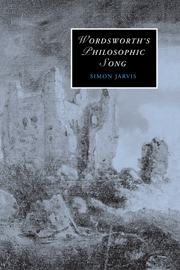4 - Happiness
Published online by Cambridge University Press: 22 September 2009
Summary
J. G. A. Pocock begins his study of Edward Gibbon's relation to the various currents of enlightenment to which he was exposed by quoting the self-description which gives Pocock his own title: ‘I have described the triumph of barbarism and religion’, remarks Gibbon, towards the close of his philosophic history. Pocock's study does much to show that barbarism and the Christian religion were for Gibbon not so nearly synonymous as has sometimes been thought; and, in particular, that Gibbon's peculiar variety of philosophical history owes much to varieties of enlightenment unlike those which we are most used to hearing about: an ‘Arminian’ enlightenment with English, Dutch and Swiss origins, as well as a tradition of deep historical erudition which D'Alembert praised faintly in his preliminary discourse to the Encyclopédie. If there was one aspect of early Christianity of which it can be said with some confidence, however, that Gibbon regarded it as barbarous, the early asceticism of the desert fathers is a strong candidate.
The prince or magistrate, the soldier or merchant, reconciled their fervent zeal, and implicit faith, with the exercise of their profession, the pursuit of their interest, and the indulgence of their passions: but the Ascetics who obeyed and abused the rigid precepts of the gospel, were inspired by the savage enthusiasm, which represents man as a criminal, and god as a tyrant. They seriously renounced the business, and the pleasures, of the age; chastised their body, mortified their affections, and embraced a life of misery, as the price of eternal happiness.
- Type
- Chapter
- Information
- Wordsworth's Philosophic Song , pp. 111 - 132Publisher: Cambridge University PressPrint publication year: 2006



